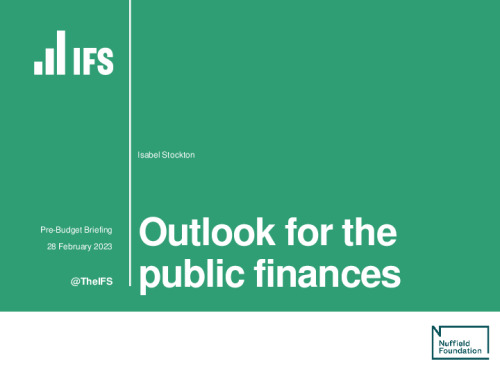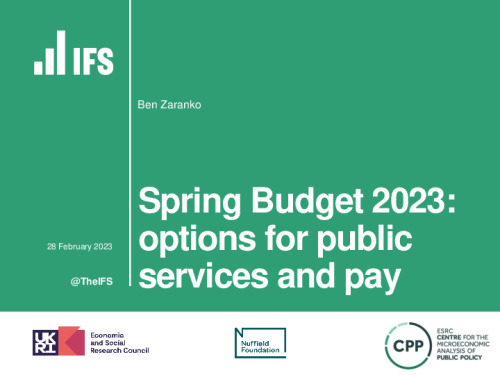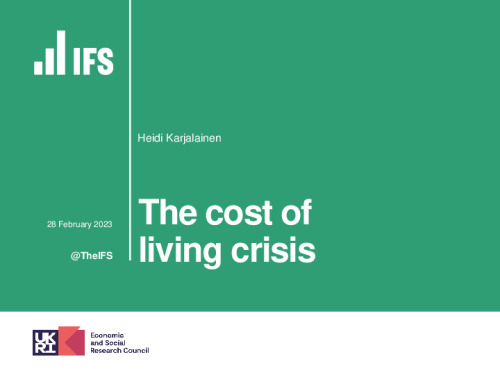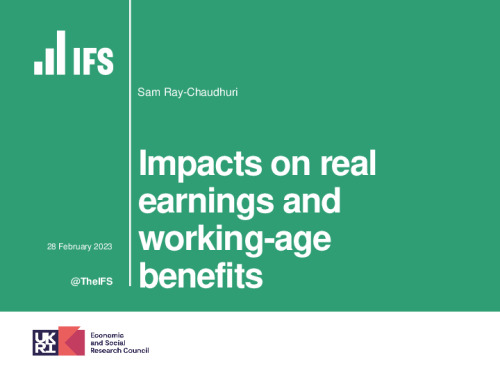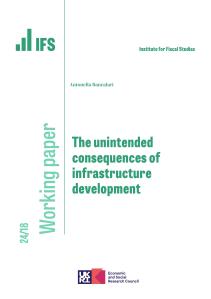Jeremy Hunt delivered his first Budget on 15 March. The period since November's Autumn Statement has been one of relative calm – certainly in comparison to the fiscal fireworks of last autumn. But households have been enduring a historically large squeeze on living standards over the winter, despite huge government intervention, which has softened the impact of inflation - still running at over 10% - and of high energy prices in particular. Meanwhile a flurry of grim forecasts from the IMF, the Bank of England and others have underlined the growth problem facing the UK, whose chronically low productivity growth has now been compounded by trends in economic inactivity. Ongoing public sector pay disputes show no signs of easing: the Chancellor will be under pressure to provide extra cash to bring nurse and teacher strikes to an end. Yet he is also facing demands to cut taxes and in the autumn he only met his fiscal rules by a hair's breadth - despite choosing a loose set of rules to begin with.
At this online event, IFS researchers outlined the challenges ahead of the Spring Budget. They covered inflation and its impacts on households, the government's support through the Energy Price Guarantee and for benefit recipients, the state of the public finances, and choices over public spending and public sector pay.
